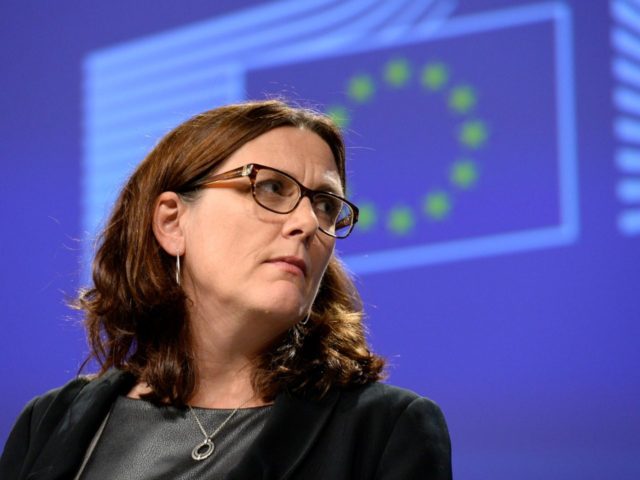Both the former and current European Union (EU) trade bosses have admitted a quickly negotiated Canada-style trade deal with the UK is possible. One demand, however, is the UK drops its threat of economic retaliation.
Former EU trade commissioner Karel de Gucht said a deal could be in place in a “very reasonable” time, but called on Theresa May to disavow the claim she will turn Britain into an offshore “tax haven” if the EU plays hardball and seeks to punish the UK after Brexit.
However, speaking ahead of the Prime Minister’s meeting with President Donald J. Trump, a former chief White House trade negotiator welcomed the idea, suggesting the UK could become “the Singapore of the Western World” after Brexit.
Cecilia Malmström, a Swedish politician and the European Commissioner for Trade, last week signalled the UK could go to the back of a “queue” of 18 nations as it tries to negotiate a trade deal with the bloc after Brexit.
However, when pressed in the European Parliament on Wednesday, she agreed that a Canada-style trade deal, whereby the UK does not have to accept open borders or pay into the EU’s budgets, was “a role model”.
Mr. de Gucht told The Times: “I am reading everywhere that it takes five, six, seven, eight years to do a trade negotiation.”
“Yes that’s true — but it’s not for technical reasons, it’s because you can’t get an agreement. Technically you could make an agreement within a very reasonable period of time because we know each other,” he said.
Mr. de Gucht’s and Mrs. Malmström’s comments represent a marked contrast with the pessimistic warnings from European leaders, who have suggested it could take up to ten years to finalise an EU trade deal with the UK.
French President François Hollande, for example, had declared Britain must pay a price for Brexit: “There must be a threat, there must be a risk, there must be a price,” he said in October.
Yet Mr. de Gucht, who is president of the Institute for European Studies, said that in order for a deal to be done, the tone of the rhetoric coming from the UK would have to change.
“They [European leaders] are in a divorce mood. The overriding opinion is there is no reason they should be better off. They feel what the British are doing is unjustified,” he said.

COMMENTS
Please let us know if you're having issues with commenting.